Eye Exams
Comprehensive eye examinations are an important part of your overall preventative health care regimen.
The eye exam does not only determine the ideal prescription for your glasses or contact lenses, but it is also designed to look for symptoms of common eye diseases such as glaucoma, cataracts, astigmatisms and other eye and vision disorders. Eye examinations can also detect non-vision health issues that you should be aware of. If warning signs are detected, you will be referred to your doctor for follow up.
What to bring to an eye exam
To be best prepared for your eye exam please bring the following with you:
- Your current glasses
- Copy of your contact lens prescription, or packages of current contact lenses
- List of medications and supplements you are currently taking
- Your health insurance information
Be aware that examinations can take up to an hour if dilating drops are required or extra tests are required to be performed. Dilating eye drops may still need to be instilled during an examination for further information. You will be notified before this happens by the optometrist.
What can I expect?
An optometrist uses a variety of methods to assess eye health and vision quality. You will be asked about your general health, any vision problems you may be experiencing, and medications you are taking. You may also be asked about your working environment and hobbies.
Both an external and internal eye examination will be done to ensure that there are no abnormalities. The internal examination will be done using a slit lamp microscope and an ophthalmoscope. It is the internal examination that can detect warning signs of diseases such as diabetes or hypertension.
Fluid pressure in the eye will be measured to check for glaucoma, and the strength of your eyes will be measured with an auto refractor. This is particularly important for children and others who cannot read an eye chart, as it does not require feedback from the patient.
Vision tests will also be employed using the wall and hand-held charts you are most familiar with, and you may be asked to try a combination of lenses until you achieve a clear focus. Other tests may be used to evaluate your perception of colour and depth or any misalignment that might prevent your eyes from working together properly.
I had a vision screening… isn’t that enough?
A vision screening is useful to determine whether you have vision problems, but it is not a substitute for a complete eye examination. The vision screening does not have to be done by a professional with the training to detect eye disease or other problems.



